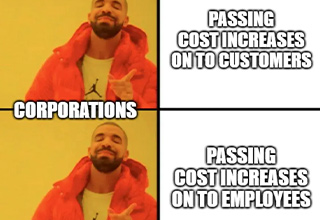Truth, a Creative Take on Religion After Post-Modernism
Letemdangle
Published
12/10/2010
The three narratives will provide the raw materials for the concluding synthesis. They contain both religious language in imaginative ways and philosophical distinctions that are relevant to understanding of my take on religion and truth in Post-post-modern times. These three narratives are disjointed within the essay because the format of the essay itself (excluding this Introduction to Purpose which, without, the reader stands very little chance of understanding the role this paper is intended to play) as dual reflection, that is, of the times they represent as well as the present day readers post-modern take on past and present.
It is important to bare in mind the symbolic nature of almost every object and action as they were painstakingly sketched out for the sake of specific meaning within the broadest meaning of the narratives. This is not only creative writing, this is meta-creative writing and I found out that in doing so I was exploring philosophical theology. The problem with this type of writing is that while it can contain the most amount of interpretive content it can also be discarded as inconsistent and imbalance. To foreshadow an important theme: Withhold judgment until The Rebirth of Truth can be seen as a whole.
In the beginning there was the barbed wire fence. Within this fence, humanity inhabited a paradise in which every need was met and absolute love was the only policy. They lived with out suffering yet they were still fully human. They did not know about what was outside the fence for they did not know there could be an outside of the fence; their only realm of experience was within this fence and even the sharpness of the barbs was alien to them because they had never seen this boundary.
Two of these people, Fatima and Eli, were very much in love. They wanted to create their own family. They followed the now lost traditions of their people and became married and eventually conceived a child. Fatima was immensely proud of her son Emidan and she claimed him to be perfect. The other mothers agreed and thought that Emidan was as perfect as their own children. Fatima agreed and Emidan grew up understanding that he was perfect just as the generation had that preceded him.
Being fully human, all of these people experienced the realities of pain and disease but what was unique about them was the absence of suffering. A small, seemingly inconsequential cold had its season within the barbed wire fence. Eli was the first to get the cold and gave it to Fatima who in turn gave it to her friends in the village. Those friends transferred the cold to their children but Fatima and Eli did not transfer it to their son. Emidan was immune to this strain of the cold for what ever reason and never fell sick with this particular illness though he had been sick many times before.
Fatima saw this and said of her son, Emidan is indeed perfect, and more perfect than all of the other children. Eli heard his wife say this and being the clever man that he was realized that there was no such thing as more perfect.
Upon careful consideration Eli responded, Actually Fatima, perfect is something that there can not be more of so it would be either that Emidan is perfect himself and that everyone else is slightly imperfect or that Emidan shares in the perfection that everyone can lay claim to.
No! retorted Fatima, he must not be the only perfect one then because he did not get sick.
A distinction had been made. Unbeknown to the rest of the people within the barbed wire fence, their perfection had been striped from them in the mind of Fatima. Fatimas qualitative judgment had placed Emidan above everyone else. When Fatima told her friends of how Emidan was the only perfect being and that everyone else was lesser to him they quickly grew angry with her and told her to leave. Fatima was outraged that she, the mother of the perfect being, was cast out by her community.
The effect of Fatima and Emidan on the community was devastating. For the first time there was disagreement between individuals. Qualitative distinctions were made to justify preferential treatment for certain individuals and many people were left wanting. For the first time there was poverty and hoarding of goods. For the first time people killed people because of petty differences. For the first time there was suffering.
Eli took Fatima and Emidan far from the community. They traveled out of the lush country they had always inhabited and into a desert. They wandered, eating only what they could find and drinking little amounts of water from plants and roots whenever they could find them. After wandering aimlessly for weeks they saw a line on the horizon. As they approached this line that spanned as far as they could see on either side they saw it was the barbed wire fence. Emidan reached for the fence with his hands and grabbed it with force. The sharpness of the wire cut into the palms of each of his hands. Fatima shrieked when she saw the blood of her perfect child drip onto the sand but Emidan was not perturbed. He climbed the tall fence cutting himself here and there while Eli and Fatima watched. When Emidan reached the top, he stood high above his parents. Eli, fearing for his sons safety, jumped up to grab the son the pull him back to safety but upon doing so Emidan lost his footing and fell onto the other side.
The barely conscious and mortally wounded Emidan looked up through the cloud of dust that was upset by his landing and saw that behind the barbed wire Eli and Fatima were weeping. Emidan now saw that the only distinction between him and all others were that he was now on the outside of the barbed wire fence.
_________________________________________________________________________
My Kitchen Table came to me from my grandmothers house. The amount of meals that this table held or the amount of writing that were done on it over the course of three generations boggled my mind when I thought about it. Yes, the history of my kitchen table is amazing.
White paint covers the entire table except for one little area that was missed right where one of the legs meets the joist by who ever painted it. I can see very subtle flower carvings on each foot. You can slide the ends of the table out and insert a leaf to extend the length of the table. I have myself stood on this table and seen a collection of over five hundred books rest on this table without so much as a creak from the pressure. Yes, the mechanics and build of this table are amazing.
If I look closely at the area that is not covered by paint I can still see the grain in the wood that the table is made from. It was a dark and heavy wood. The years that the tree took to grow, probably deep in a forest of Quebec, and all of the animals that have been on it and used it are not documented by history. The only way we could possible know would be to examine the trends of the forest that it came from so that we could see the make-up of the soil it was planted in or the kinds of animals that lived in proximity. Yes, the biology behind this table is amazing.
I can glide my hand across the surface of the table and feel the little bit of friction that it causes on my finger tips. I realize even when I am doing this that the friction is electromagnetic. Both the table and I have an electromagnetic field caused by the relationship between positive and negative particles even smaller than the cells that they form. In fact, physics tell me that my table is a dense cloud of atoms arranged by nature into wood. And if I look deeper into what the atom is, a world of strange and charming quarks that science is still delving deeper and deeper into. Yes, the physics of my kitchen table are amazing.
I remember hiding under the table when I was little. When strangers came into the house or my parents would yell at me I would run out to the kitchen and hide under the table because under there I was safe. I have eaten at this table for all the years of my life so when I leave it I am never hungry. No matter how many times we redecorate our house that table stays right where it is because its a little to big for any other configuration. I have seen this table as safe, nourishing and constant. Yes, the psychology behind this table is amazing.
A carpenter would look at the table and know nothing of the psychological significance. A psychologist would look at the table and know nothing of the physics behind it. A physicist would look at the table and know nothing of the biology behind it.
They could all look at it, catalog every last collectible piece of data on it and explain it over volumes and volumes text and they would be right. But only I can know how amazing my kitchen table is.
________________________________________________________________________
The King Decided that he did not understand why it was that he was king. So as the king would he hired the finest thinkers in his kingdom to tell him why he was great.
The first of the hired thinkers arrived the day after the decree was sent across the land. The King asked this first thinker, Am I great and why?
Fearful for his life at giving the wrong answer this first thinker replied, You are great because you are the direct descendant of the greatest conqueror this world has ever seen.
Dissatisfied with this answer, because he did not feel that the actions of the past kings justified his own greatness, the King imprisoned the first thinker in anger in a cage near the front of his throne room so that all other thinkers who came would see what would happen to them if they were wrong.
The following week the second thinker came from one of the kingdoms farms where it took longer for the message to arrive. The king was frustrated and ushered the second thinker forward to answer his question, Am I great and why? which he yelled at the man.
The second thinker, shaking, told the king, you are great because your wisdom has made your kingdom prosper, your understanding of economics has made you rich beyond any other king.
Once again the king was dissatisfied with the answer because the farmer equated his greatness with that of a clever merchant. The king imprisoned the second thinker with the first and grew immensely angry.
Two months later the third thinker arrived at the Kings city to see a very different sight then before. Posters that said that the king was great littered the streets. The posters were covered in the accomplishments, abilities and heraldry of the king. The other thing that the posters said and the most disturbing was that: Now is the time of the King! Despite the adamant claim, it was clear that the people had less and less faith in the ability and greatness of the king. People saw his campaign to explain his greatness to everyone as a sign of weakness and massive gaps were seen in his ability to have any authority.
The third thinker entered the throne room and saw a stressed king who ushered him forward and said, Now is the time of the King! Why am I great?
The third thinker was a very smart man and replied, The time of the King has been since your ancestors took the crown. You title this as an era with in itself but all you are doing is reexamining little bits and pieces of what you are to justify your greatness. The truth is you're the King and your greatness relies on this fact alone.
_________________________________________________________________________
Concluding Synthesis: In the beginning, My Kitchen Table and King Decided are all short narratives which are at the core about understanding truth. They each reflect different points of view as well as representing symbolically general historical facts.
In the beginning is a take on the prehistorical Eden all the way to early Christian times. It is essentially a story focused around the kind of truth that was held by the people of these times with out adhering to any historical events. The significance of the barbed wire fence is that it symbolizes the limits of religion, limits that were not even known to the people of the village and only through the philosophical distinctions understood by Eli and Fatima did they encounter this boundary. Emidan represents Jesus, when he is cuts his hands climbing the fence this symbolizes the crucifixion. His blood was given as a free act but when the philosophers attempted to grasping him (Eli, jumping to pull the Emidan to safety, in this case was the philosopher because he made the original philosophical distinction) he fell beyond the boundaries of religion. This falling represents most specifically the fusion of metaphysics and religion in Augustine and Aquinas. Augustine had an impressive understanding of Platonic philosophy and Aquinas was very much inspired by Augustine, thus two of the most influential authors in Christendom have encouraged the trend of reconciling faith and reason in Christian thought and indeed all western religious thought.
My Kitchen Table represents the a very modern representation of truth and touches upon the post-modern. Many different avenues of sciences for finding truth are explored. My Kitchen Table shows that even a simple table contains so much truth and can be examined in so many different ways. Modern ways of finding truth are history, science and practical testing which are all true. When one has an overview of all of these types of knowledge we do not know where to ground the truth and it becomes fragmented in our minds.
Post-modernism fragments truth so that it does not matter how much is collect because truth stays separated by mental distinctions. Finding a root to base knowledge on and building from that defines foundational philosophy, a type of philosophy that Rene Descartes, at what is often marked the beginning of the modern era, began to practice. His influential method is seen plainly enough in his M The King Decided is an attempt at overcoming fragmented knowledge. The King is very insecure with what he thinks he is. He represents the individual from the modern world. Though he is King (whether for good reason or not is debatable) built from the foundations of conquest and wise economic practices when he looks back on the foundations of his Kingship he is puzzled. When each fragmented reason is examined separately it seems less then convincing. This is someone with a post-modern mind set. Post-modern philosophy rejects the foundations that knowledge is built upon and looks back to find truth anyway it can. In this way, post-editations on the First Philosophy.
modernism is less of an era and more of a philosophical tool of reflection within the modern era. The post-modern deconstructionism is a trend that is identified by Graff among other writers. He says, The loss of significant external reality, its displacement by myth-making, the domestication and normalization of alienation... are parts of post-modernity and though post-modernism would think itself separate from modern it is, remains tied to that tradition and unable to break with it.
Literature Against Itself: Literary Ideas in Modern Society, p. 62 Within the narrative, The King Decided, the king had declared that a new era had begun when really nothing had changed other than the fact that he recognized his overwhelming confusion with truth. The third thinker without disregarding the fragmented truth that was perpetuated by the King proposed a supra-realism. This supra-realism is a possible next step in religious thinking.
Faith and reason are no longer separate, the truths of religious language are not only not contested by reason because truth will be seen as all encompassing. Philosophical distinctions will no longer litter the mental streets with fragments of truth from religion and meaning will be found through acknowledgment of the wholeness of truth that religion might have for us.
In other words and to relate back to In the beginning, we have escaped the original boundaries of religion and come across an intellectual wasteland. We have planted the seeds of truth all over the desert and reexamined our scars from the fence. When we turn intellectual seeds of truth all we can do is hope for divine rain to flood the barren dessert so that we can enjoy the fruits we once had within the fence while we have no boundaries to contain the philosophical curiosities of humanity.
And Now For Something Completely Different!






7 Comments